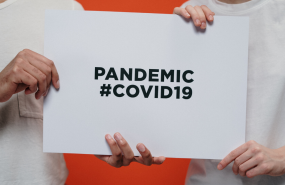GF’s allocations methodology for 2017-2019
- 11.05.2016 02:01
- Post Views: 1,176
The Board has approved a methodology for determining the allocations for 2017-2019.
The methodology does not differ significantly from the one used for the 2014-2016 allocations. The main differences are as follows:
- There will be no country bands (or country groups of any kind) used.
- No specific sum of money has been set aside for incentive funding or for regional proposals (though there will be funding available for both as part of a new pot of money for “catalytic investments”).
- The qualitative adjustment for minimum required level will be replaced by a simplified system.
- A simplified system will be used to identify initiatives to be placed on the Unfunded Quality Demand register.
The catalytic investments will serve three purposes: (1) to provide a form of incentive (“beyond allocation”) funding; (2) to fund multi-country approaches; and (3) to fund strategic initiatives.
Once the amount of money available for country allocations is known, the allocations model will be applied. As before, the funds will first be divided into three envelopes, one for each disease, as per the global disease split. The Board already decided that the split for 2017-2019 will be the same as the split used for the 2014-2016 allocations: HIV 50%; malaria 32%; and TB 18%.
For 2017-2019, a simplified process will be used to identify unfunded quality demand. Applicants will no longer be asked to prepare allocation and above-allocation portions of their concept notes. Instead, costed national strategic plans and/or programmatic and financial gap tables in the concept notes will serve as the basis for estimating beyond-allocation need. During development of the funding request, a limited set of key additional, prioritized and costed needs will be identified for programming, should resources become available. These needs will be reviewed and registered at the time of initial submission of a funding request and maintained on a register to attract additional resources, and to facilitate reprogramming of savings or efficiencies during the grant lifecycle.
The methodology has caused some concerns and comments, some of which are referred to in the original article on Aidspan website.
“Allocation Methodology 2017-2019,” Board Document GF-B35-05, should be available shortly at www.theglobalfund.org/en/board/meetings/35. A copy of the MSF letter is on file with the author.
Source: Aidspan
Post Views: 1,176
Related News
Launch of open consultation on Global Fund Strategy development
Global Fund has launched an open consultation on the development of the post-2022 strategy. A background presentation is attached that explains the consultation process and lists a set of questions for reflection and input. The first round of input received by 1 September 2020 will be reviewed by the Global Fund Board’s Strategy Committee in […] Read moreGlobal Fund funding opportunity – COVID-19 Response Mechanism
The COVID-19 Response Mechanism (C19RM), approved in April 2020, authorizes US$500 million in funding in addition to grant flexibilities. C19RM can be used across the three diseases and the health system, even if a country only has a single Global Fund grant for one component. The CCM will assess the most urgent needs and direct […] Read moreCOVID-related Funding Opportunities for Civil Society Working on HIV, TB, Malaria, Gender and Human Rights
We would like to share with you the information about few COVID-related Funding Opportunities available for Civil Society Working on HIV, TB, Malaria, Gender and Human Rights in EECA. Post Views: 3,142 Read moreServices for migrants and refugees from Ukraine – HIV/TB care with a focus on key populations
Due to the increasing flows of refugees from Ukraine because of Russia’s invasion of Ukraine, the EECA Regional Platform created a spreadsheet to fill contacts details of face-to-face and online services for refugees and migrants (with a focus on HIV/TB care and key population groups).
Regional Platform – EECA
This web-resource is a part of new regional communication and coordination project “Regional Civil Society and Community Support, Coordination and Communication Platform - EECA”, implemented by Eurasian Harm Reduction Association (EHRA).
Tags
See also
-
Grant Cycle 7 Reprioritization: How can communities prepare? 02.07.2025 12:03
-
Webinar: Using Global Fund's Data for Advocacy 12.06.2025 12:00






